Who are the Uighurs and why is China being accused of genocide?
China calls them “re-education camps” – but what really goes on behind the barbed wire has been revealed, and human rights experts are appalled.
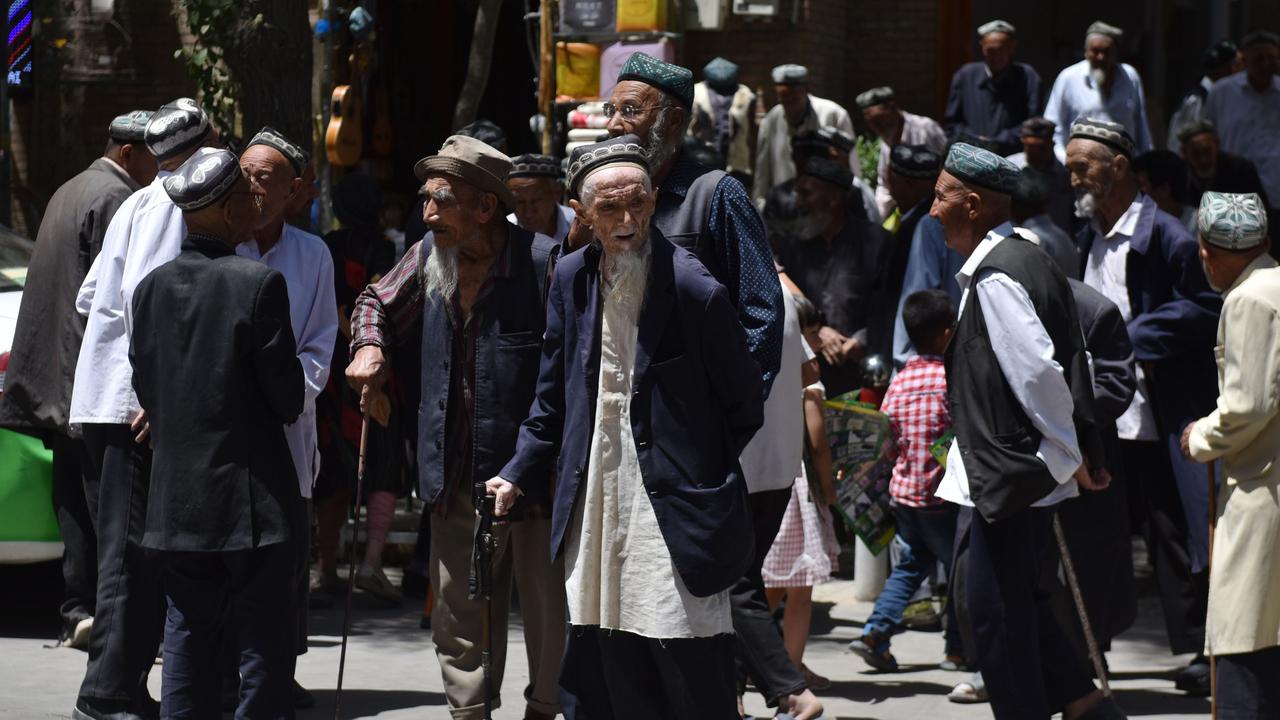
China has been accused of genocide and shocking human rights abuses over its treatment of the Uighurs.
Human rights groups and international observers allege that around one million men and women from the mostly Muslim ethnic minority group have been detained in a sprawling network of “re-education” camps in the northwestern Xinjiang province.
The Chinese Communist Party has come under increasing pressure from the global community this month after a BBC report detailed horrific, first-hand accounts of systematic rape, sexual abuse and torture of female detainees.
Following the report – which China’s foreign ministry said had “no factual basis at all” and was the work of “actors spreading false information” – Australia’s government called on China to allow United Nations inspectors into the region to investigate the allegations.
“Australia has been consistent in raising our significant concerns with the human rights abuses in Xinjiang,” a spokeswoman for Foreign Minister Marise Payne said earlier this month.
“These latest reports of systematic torture and abuse of women are deeply disturbing and raise serious questions regarding the treatment of Uighurs and other religious and ethnic minorities in Xinjiang. We consider transparency to be of utmost importance and continue to urge China to allow international observers, including the UN High Commissioner for Human Rights Michelle Bachelet, to be given immediate, meaningful and unfettered access to Xinjiang at the earliest opportunity.”
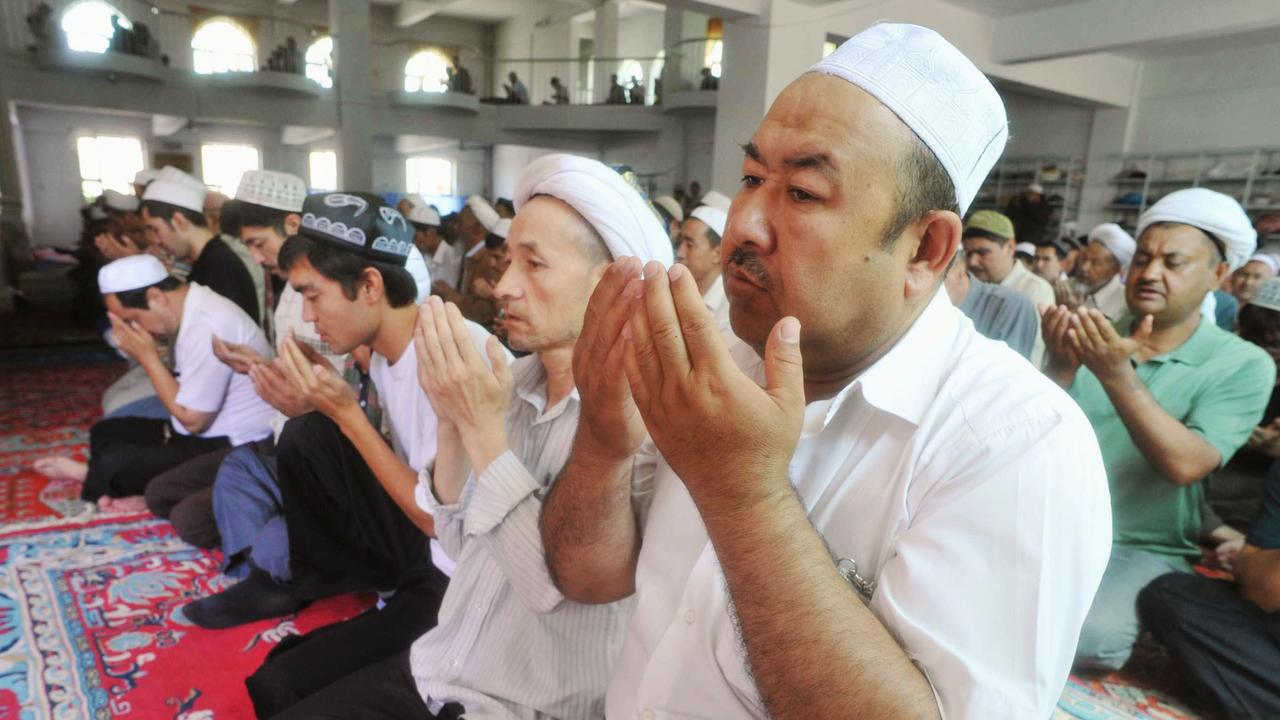
WHO ARE THE UIGHURS?
The Uighurs – also spelled Uyghurs or Uygurs – are an ethnically and culturally Turkic people native to Central and East Asia.
They speak their own language, similar to Turkish, and the majority are Sunni Muslims.
There are estimated to be just over 12 million Uighurs living in Xinjiang, comprising less than half of the population of the region following decades of mass migration of Han Chinese.
Around one million more Uighurs are spread out in countries including Kazakhstan, Turkey and Uzbekistan, as well as several thousand in Australia.
These figures are disputed, however, with some Uighur activist groups claiming Chinese authorities deliberately undercount their numbers and that the true population is anywhere between 20 to 30 million.
“The Uyghurs have a rich cultural history going back almost 4000 years,” the US-based Uyghur Human Rights Project (UHRP) writes.
“Before embracing Islam in 10th century, Uyghurs believed in Buddhism, Manicheism and Nestorian Christianity. Today, Uyghurs practice a moderate form of Sufi Islam and lead predominantly secular lives.”
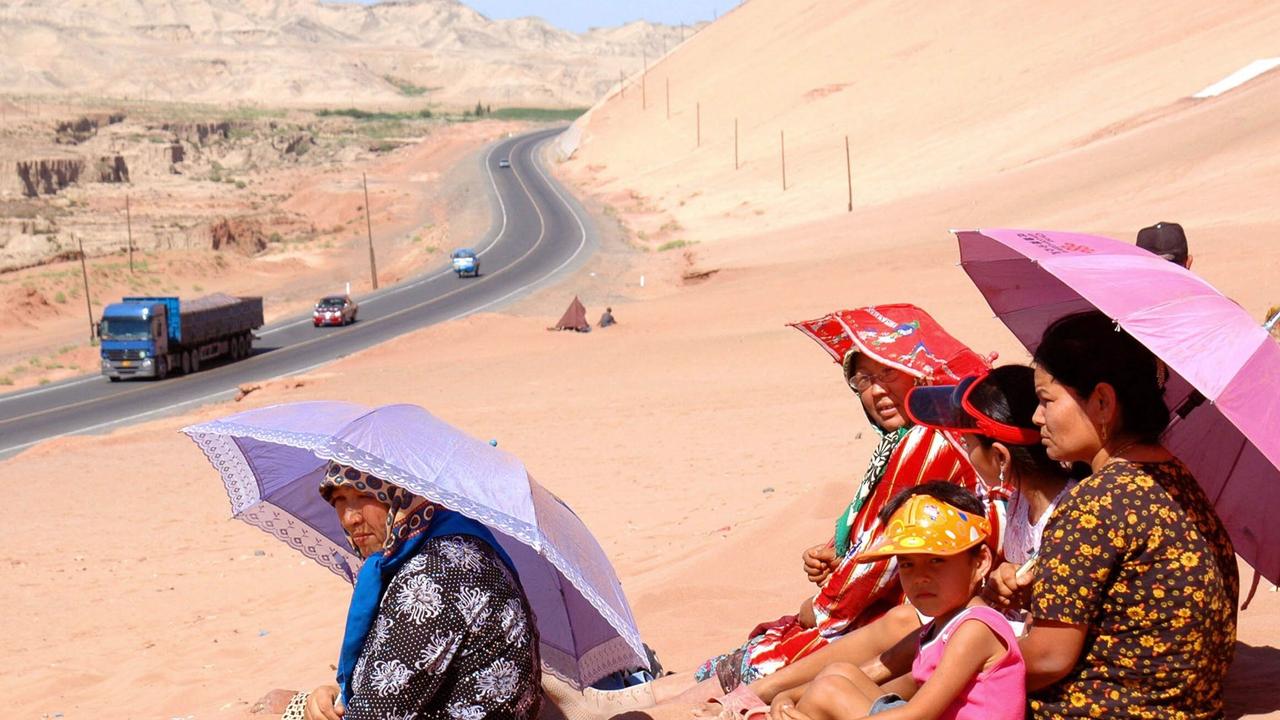
WHERE IS XINJIANG?
Xinjiang, officially referred to as the Xinjiang Uyghur Autonomous Region, is a mostly desert region in China’s northwest bordering eight other countries – Mongolia, Russia, Kazakhstan, Kyrgyzstan, Tajikistan, Afghanistan, Pakistan and India.
Historically the area was known as East Turkestan – a name still used by Uighur separatists who maintain that the region was invaded by the Chinese Communist Party in 1949 and has been under occupation ever since.
It’s an enormous region covering nearly 1.7 million square kilometres, or one-sixth of the total land area controlled by China.
Xinjiang produces around one fifth of the world’s cotton and is rich in fossil fuels including oil, coal and natural gas.
In addition to being the country’s national energy base, Xinjiang is also viewed as strategically important as it links China with Russia, Central Asia and the rest of Europe.
As such, it’s the linchpin of the Communist Party’s Belt and Road Initiative, a $1.5 trillion global trade and infrastructure project that seeks to place China at the centre of the economic and political world.
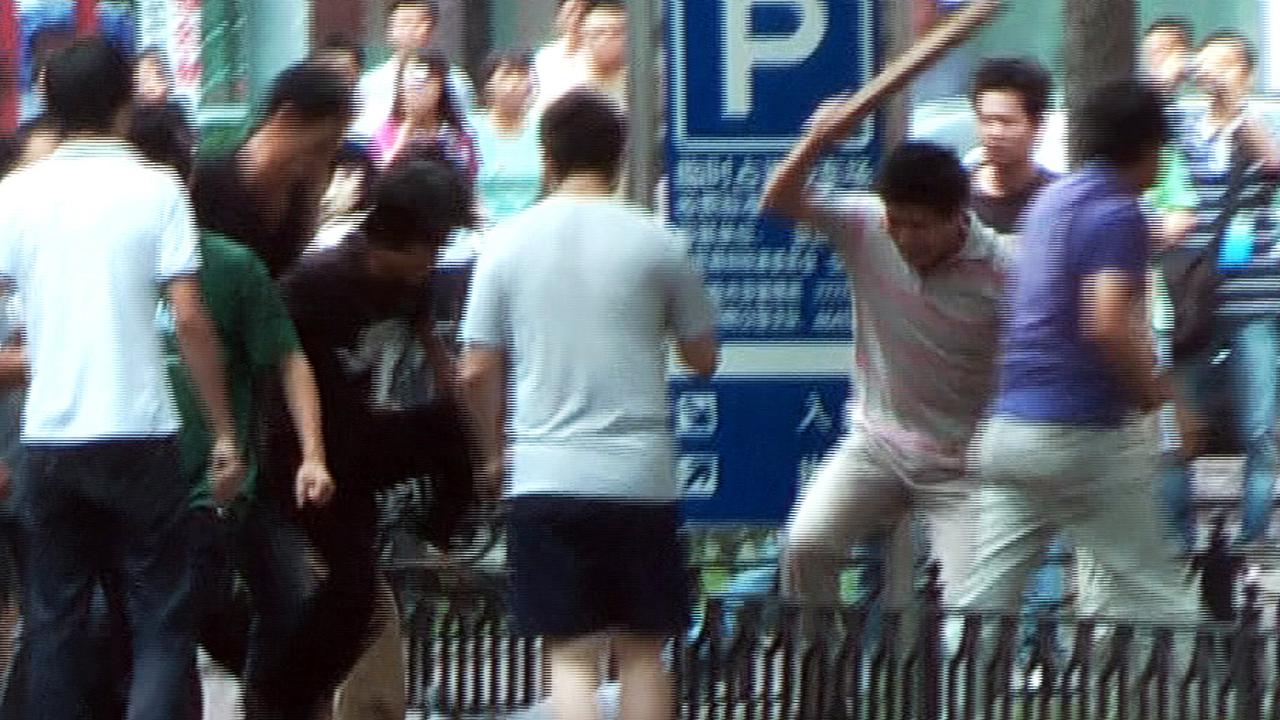
WHAT LED TO THE CRACKDOWN?
Uighurs have long complained of oppression by the Chinese Communist Party – which for decades has ruthlessly cracked down on separatist movements in Xinjiang – but that has accelerated dramatically since 2014 under President Xi Jinping.
A major Islamist insurrection in 1990 was a turning point for Beijing, which embarked on a far more expansive policy of control over Uighur society and mass migration of ethnic Han Chinese in order to speed up the integration of the province with the rest of the country.
Human Rights Watch noted in a 2005 report that immediately after 9/11, the Chinese government went from characterising the Uighur separatist clashes as isolated incidents to connecting them with “international terrorism”, including Osama bin Laden and Al Qaeda.
Over the years, the Xinjiang conflict has been marked by riots and terror attacks, including the infamous 2014 Kunming railway station attack – in the southwestern Yunnan province – in which eight knife-wielding Uighur separatists killed 31 innocent travellers and injured more than 140.
Following that attack, President Xi ordered a major crackdown in Xinjiang.
“The battle to combat violence and terrorism will not allow even a moment of slackness, and decisive actions must be taken to resolutely suppress the terrorists’ rampant momentum,” he said in comments published by the official Xinhua news agency.
Internal government documents leaked to The New York Times in 2019 revealed that Mr Xi, in private speeches to party officials, had called for an all-out “struggle against terrorism, infiltration and separatism” using the “organs of dictatorship” and showing “absolutely no mercy”.
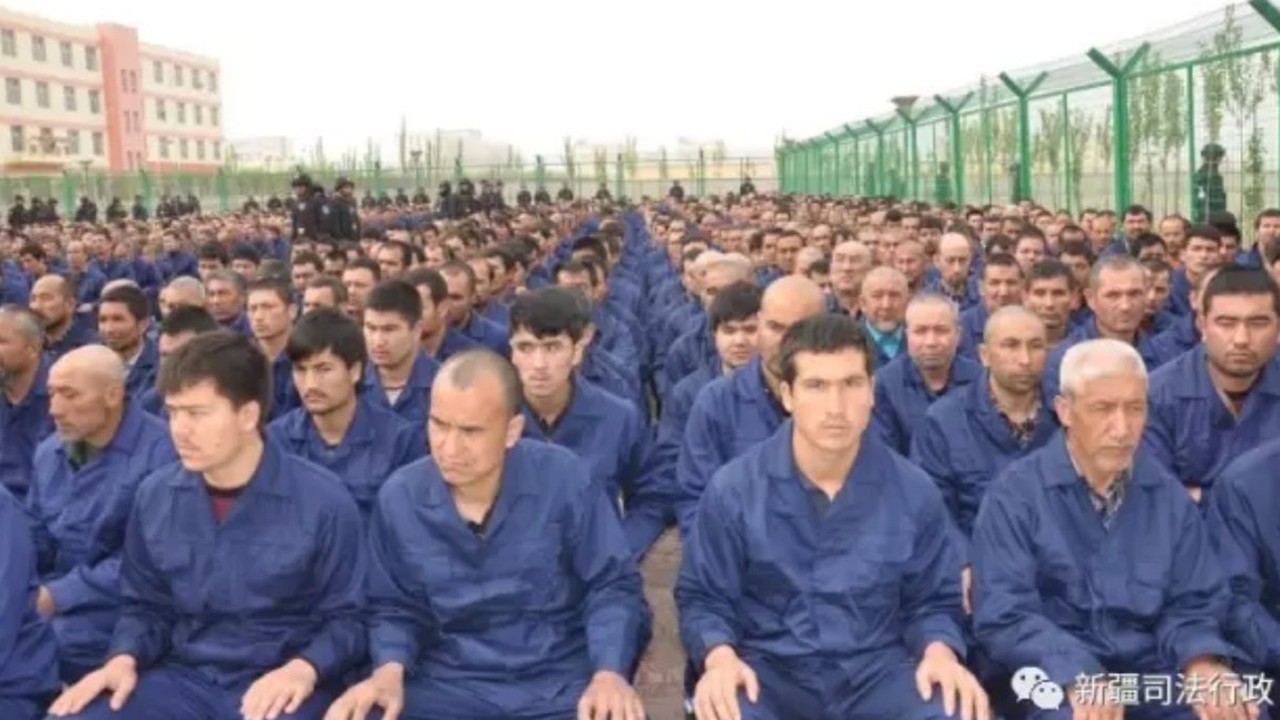
WHAT IS CHINA ACCUSED OF?
Since 2017, China has reportedly detained up to one million Uighurs and other Turkic and Muslim minorities in a vast network of detention centres, which it refers to as “re-education camps” or “vocational training centres”.
Analysts from the Australian Strategic Policy Institute think tank, using satellite imagery, have identified and mapped more than 380 such sites across Xinjiang.
Officially, China says the camps are focused on training and skills development, but former inmates have described physical and psychological torture as they are forced to renounce Islam and pledge allegiance to the state.
Human rights groups have alleged that inmates are subjected to abuses including forced labour, brainwashing, sterilisations, systematic rape, sexual torture, medical experimentation and organ harvesting.
Outside the camps, Chinese authorities have been accused of concerted campaign to erase Uighur culture and Islamic traditions, destroying thousands of mosques and scores of traditional Muslim burial grounds.
Those who remain free are subjected to pervasive, hi-tech surveillance of virtually every aspect of their lives.
There have been reports of the mass sterilisation of Uighur women and the separation of children from families, and women have also been subjected what has been likened to government-sponsored “mass rape” under a disturbing program that places Chinese men in the homes of Uighurs whose husbands have been detained.
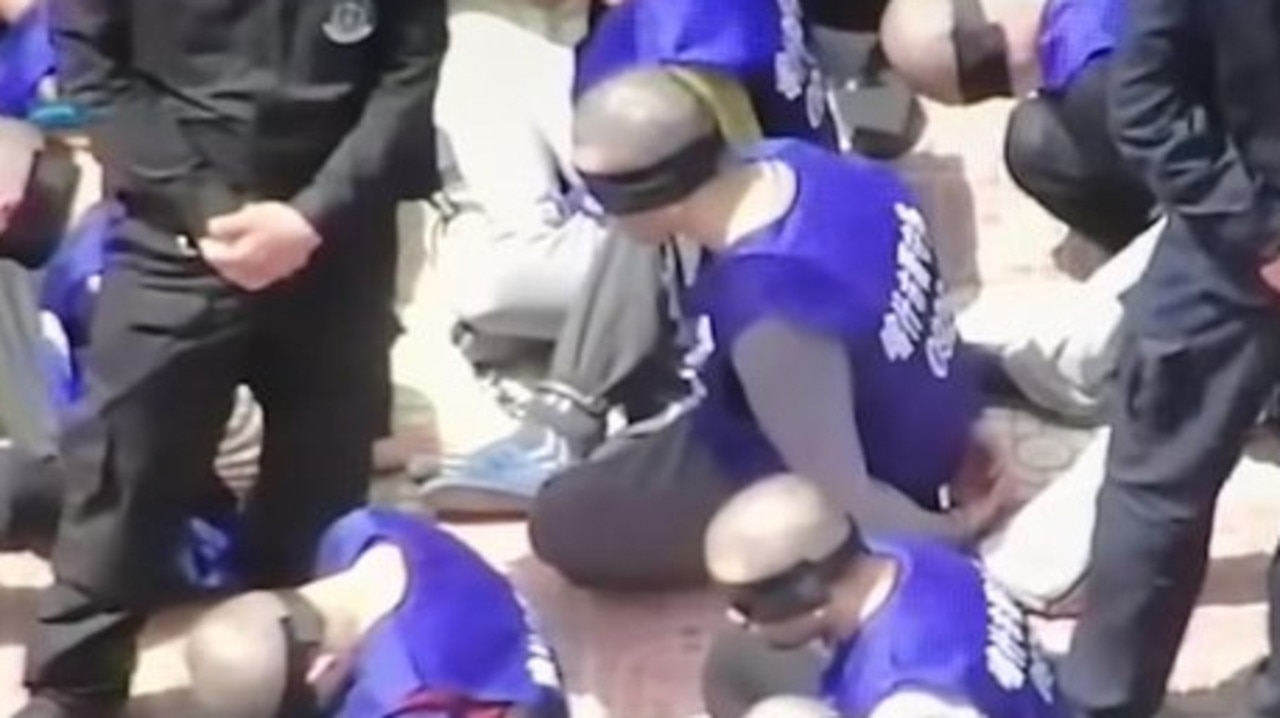
US CONDEMNS UIGHUR ‘GENOCIDE’
Former US President Donald Trump took a hard-line stance on China, slapping visa restrictions and financial sanctions on Communist Party officials over the “horrific abuses” against the Uighurs.
In one of his final official acts, former Secretary of State Mike Pompeo declared that China was committing genocide and crimes against humanity in its treatment of the Uighurs and other minority ethnic groups in Xinjiang.
“I have determined that the PRC (People’s Republic of China), under the direction and control of the CCP (Chinese Communist Party), has committed genocide against the predominantly Muslim Uyghurs and other ethnic and religious minority groups in Xinjiang,” Mr Pompeo said in a statement.
“I believe this genocide is ongoing, and that we are witnessing the systematic attempt to destroy Uyghurs by the Chinese party-state. These crimes are ongoing and include … the arbitrary imprisonment or other severe deprivation of physical liberty of more than one million civilians, forced sterilisation, torture of a large number of those arbitrarily detained, forced labour and the imposition of draconian restrictions on freedom of religion or belief, freedom of expression and freedom of movement.”
During his Senate confirmation hearings, President Joe Biden’s Secretary of State pick Antony Blinken praised the Trump administration’s handling of China and said the Biden administration would continue to take a “tougher approach”.
Mr Blinken said he agreed with his predecessor’s characterisation of China’s treatment of the Uighur Muslims as “genocide”.
“That would be my judgment as well,” he said.
“I think we’re very much in agreement. The forcing of men, women and children into concentration camps – trying to, in effect, re-educate them to be adherents to the ideology of the Chinese Communist Party, all of that speaks to an effort to commit genocide.”

WHAT DOES CHINA SAY?
China has consistently denied any wrongdoing and labelled reports of human rights abuses as fabrications.
“The Xinjiang issue is not about human rights, religions or ethnic groups at all, but about combating violence, terrorism and separatism,” Foreign Ministry spokesman Wang Wenbin said last year.
In response to the BBC report detailing sexual abuse allegations – which resulted in the British broadcaster being banned in China – a Foreign Ministry spokesman said earlier this month that the story “has no factual basis at all”.
“This is not the first time that the BBC has made some false reports on Xinjiang, and each time we refuted false claim and cleared out the situation,” he said. “As I just said, some of the interviewees turned out to be actors spreading false information.”
After Secretary Pompeo’s statement last month, China dismissed him as a “doomsday clown” and described his declaration as a “a piece of wastepaper”.
“(The allegations are) outright sensational pseudo-propositions and a malicious farce concocted by individual anti-China and anti-Communist forces represented by Pompeo,” Foreign Ministry spokeswoman Hua Chunying told reporters.
“In our view, Pompeo’s so-called designation is a piece of wastepaper. This American politician, who is notorious for lying and deceiving, is turning himself into a doomsday clown and joke of the century with his last madness and lies of the century.”
In his first phone call with President Xi earlier this month, Mr Biden pressed his counterpart on human rights abuses in Xinjiang.
Relaying details of that call during a CNN town hall this week, the President said he had stressed with Mr Xi that he was “going to speak out” about the issue.
“He gets it. Culturally there are different norms that each country and their leaders are expected to follow,” he said.
“There will be repercussions for China, and he knows that. What I’m doing is making clear that we are going to reassert our role as spokespersons for human rights at the UN and other agencies that have an impact on their attitudes.”




